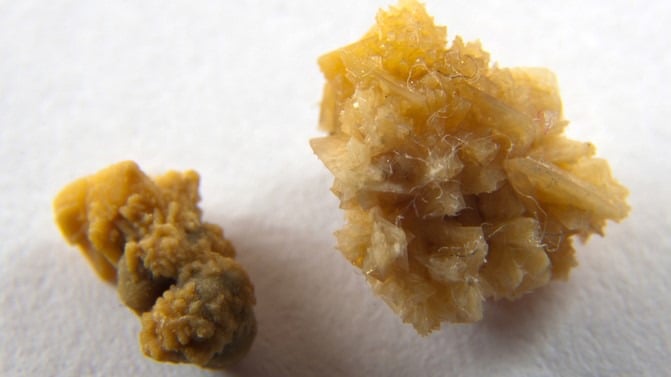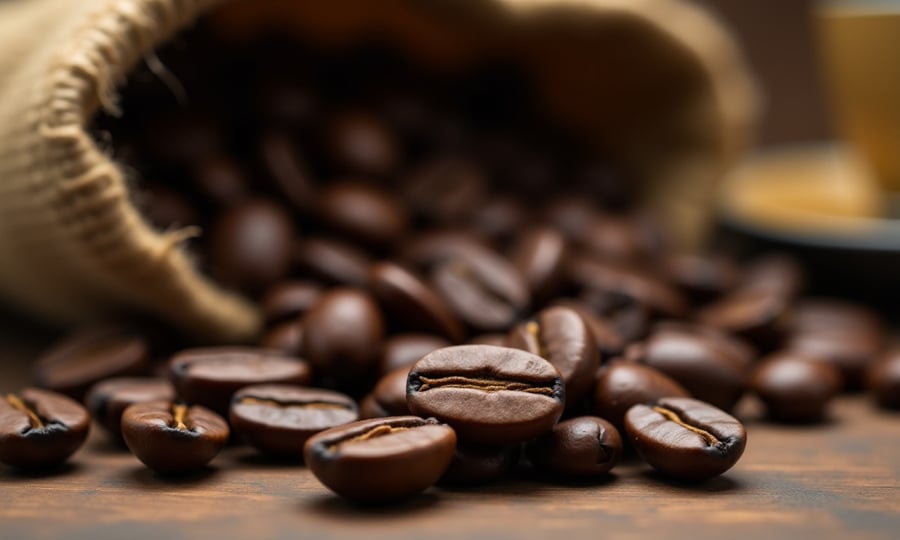Coffee is often associated with increased alertness and improved focus. However, not many are aware of its potential role in reducing the risk of kidney stone formation, a prevalent health issue today.
1. Understanding Kidney Stones and Their Causes
According to the National Kidney Foundation, kidney stones occur when your body struggles to expel waste products through urine. Minerals then gradually form crystals and continue to accumulate waste products, eventually forming stones.
There are four common types of kidney stones:
- Calcium oxalate stones: The most common type, formed when there is high oxalate intake. Reducing oxalate in your diet can help lower the risk of these stones.
- Uric acid stones: The second most common type, often associated with gout, diabetes, or metabolic syndrome.
- Struvite stones: These tend to form in individuals with urinary tract infections (UTIs) or kidney infections.
- Cystine stones: Resulting from cystine, a type of amino acid that leaks from the kidneys into the urine. This type of stone is linked to a rare genetic disorder called cystinuria.
Kidney stones can affect people of all ages, including children and adolescents. However, medical experts suggest that men are twice as likely to develop them as women, especially around the age of 30.
The causes of kidney stones include:
- Dehydration
- High salt intake
- Excessive calcium consumption
- Underlying medical conditions such as obesity or metabolic disorders
While small stones can pass out of the body naturally, larger ones may require medical intervention. Hence, early prevention is essential.

Kidney stones can affect people of all ages.
2. The Surprising Role of Coffee in Reducing Kidney Stone Risk
Recent studies have shed positive light on the impact of coffee, especially caffeinated coffee, on kidney stone formation. Research by the National Kidney Foundation (USA) indicates that individuals who regularly consume coffee or tea are less likely to develop kidney stones compared to non-caffeine consumers. Interestingly, this effect isn’t limited to coffee but extends to tea, caffeinated soft drinks, and even caffeinated alcohol.
3. Caffeine and Kidney Stones: How Do They Interact?
Another study suggests that increasing daily caffeine intake from one cup to approximately one and a half cups can reduce the risk of kidney stones by 40%. This is further supported by a meta-analysis published in 2022 in International Urology and Nephrology, which found that higher caffeine consumption was associated with a lower incidence of kidney stones.
Some people worry that coffee may cause dehydration, a risk factor for kidney stones. However, according to Harvard Medical School, the water content in coffee counterbalances its mild diuretic effect, thus not significantly affecting body hydration as once believed.

Daily coffee consumption may reduce the risk of kidney stones.
4. Healthy Coffee Consumption to Reduce Kidney Stone Risk
While the benefits are clear, caffeine consumption should be moderate. Harvard Medical School recommends limiting caffeine intake to a maximum of 400 mg/day, equivalent to 4 to 5 cups of regular coffee, to maintain kidney health and avoid side effects like nervousness, insomnia, or high blood pressure.
If you’re looking for another reason to justify your morning coffee habit, here’s a compelling one: coffee may help reduce your risk of kidney stones. However, remember to drink in moderation and pair it with a balanced diet, adequate hydration, and regular health check-ups to comprehensively support your kidney health.
Does Matcha Make You More Alert Than Green Tea? The Answer May Surprise You
Matcha is the latest beverage trend taking the world by storm, but does it live up to the hype? With a plethora of purported health benefits and a promise of enhanced focus and alertness, it’s time to delve into the world of matcha and uncover the truth. Uncover the secrets of this ancient beverage and discover why it might just be your new go-to drink.





































